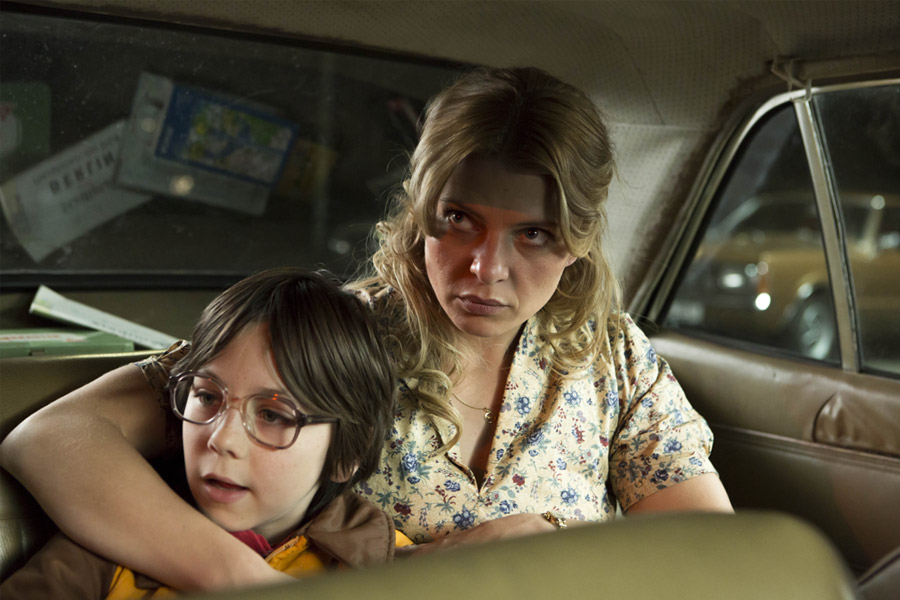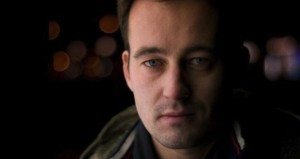

In “West”, director Christian Schwochow takes us to 1970’s Germany to tell the story of Nelly Senff (Jordis Triebel) a woman who decides to escape from behind the wall taking her young son Alexej (Tristan Gobel) with her. In the West she realizes that life has no easy fixes, as she becomes the target of the Allied Secret Service who plague her with questions about Alexej’s father’s mysterious disappearance. Shattered by paranoia and her need to protect her son, we see Nelly slowly unravel as the film takes us down a path of despair and hopelessness.
The film is being show in New York as part of the Kino Festival of German Films and we sat down with Schwochow who talked about how personal the film is, casting Triebel and the effect of his film in audiences.
The film is based on a semi-autobiographical novel by Julia Franck. How did you learn about the story and decided to adapt it?
I read Julia’s book maybe ten or twelve years ago, it was my first year in film school, I was very fascinated and thought “this feels very strange and very familiar at the same time”. I thought this could make a great film some day, but I was just beginning my studies and knew there was another director interested in the book. Six years later I finished my graduation movie and tried to find if anyone had made this film, but no one had, so I contacted Julia Franck myself, we met and she told me that the project had been stopped and then I started working on it. My family has a similar background, we didn’t go to a camp, but we come from the East and my dad was in jail for two years after he got caught trying to escape. When he was preparing his second attempt to escape he met my mother and in the late 80s their application to leave the country was accepted on the day the Berlin wall came down. They decided to move and starting a new life was very difficult. I was eleven, like the boy in the film, but it was strange, people spoke the same language but we had to learn to do everything all over. I started writing the script with my mother, we have been working together since I was in school. The book has four different perspectives, which we changed for the screenplay and we also added a lot of our personal experiences.
There’s this idea we’ve seen in films of West Germany being paradise compared to the East; however your film suggests that the West was equally as repressive.
There are so many people who don’t feel portrayed in these films, because as easy as it is to say “good system, bad system” or “happy people, sad people” the truth is much more complicated. Not everyone was unhappy in East Germany. We had moments of happiness in our family, but I also understand why it’s important to have a view between the lines. Now that we know what Western secret services have been doing throughout the years, we see Snowden for example and those things don’t even concern us anymore, we don’t give a shit. Everybody’s angry that our chancellor has been monitored for example, but the very next moment you are giving away your information on Amazon without thinking twice about it. There’s a need for films that could work as a provocation for people, that would offer them a different perspective and why societies develop the way they do. Also in Germany there’s a generation of filmmakers who are tired of seeing the same stories over and over. Making those films is easy because they don’t raise any questions, but for me it was much more interesting to ask questions beyond ideological limits. Ask to people who were on both sides of the wall. I think it’s time for filmmakers to get some answers.
Since this was obviously so personal, what was it like for you to go back to this recreated world that you’d last seen as a child?
It was cool because as a filmmaker you also love to play and finding the costumes and doing the research was great. I spent a couple of days and nights in a refugee center to get the feeling, to hear what sounds they hear at night, it was crazy to be with strangers. Creating this world was very emotional because it brought back memories and you also hear to people’s experiences, but it was also joyful, because for example these cars that we used, people have kept for forty years and they have taken care of them for so long. Many of these things, like candy wrappers for example, we found not in museums but in collectors’ homes.

Can you talk about working with Tristan Gobel? Did he know what the movie was all about?
Tristan didn’t really know, he read the script. This was his first big role and we tried to explain as much as possible, but what was more important was that he understood his character’s emotional path. From his private life he could relate to some of these situations. I never explained him the historical background, but what we did is that we found the right emotions. The adult actors were very helpful with him, Alexander Scheer and Jordis were very focused on him. Tristan is such an open, smart job he would usually understand things without me even talking.
What about Jordis, how did you cast her?
It’s a funny story because Jordis and I met when we were eight. We’re from the same neighborhood in East Berlin and we met in a children’s theater group. Then the wall fell down, we moved to the West, lost contact and we met again fifteen years later. Now I’m moving to her neighborhood in Berlin, it’s nice that since there were so many things in this film that we shared as children, we didn’t really need to discuss them too long.
Can you discuss about you set the tone for the film? It has shades of a thriller but it’s really a character study.
I used the thriller elements, not because I wanted to work in this genre, but because they were part of the character study. These little observational moments come from Nelly’s perspective. They are not just elements to create tension. I didn’t really like any spy movies. I grew up with Fellini (laughs), I’ve seen “La Strada” like fifty times.
What do you want audiences to take from the film?
I don’t want to sound like a teacher but I want them to suffer, I mean, if you sit in the front rows, you’ll see the sound and camera moves are aggressive. I want them to feel the emotional and psychological experience of starting anew. I came back from Seattle and this man was in tears and said “now I understand why so many people in the world hate America, because we do horrible things”, and this wasn’t my purpose, but if people find something that provokes them I’m happy.